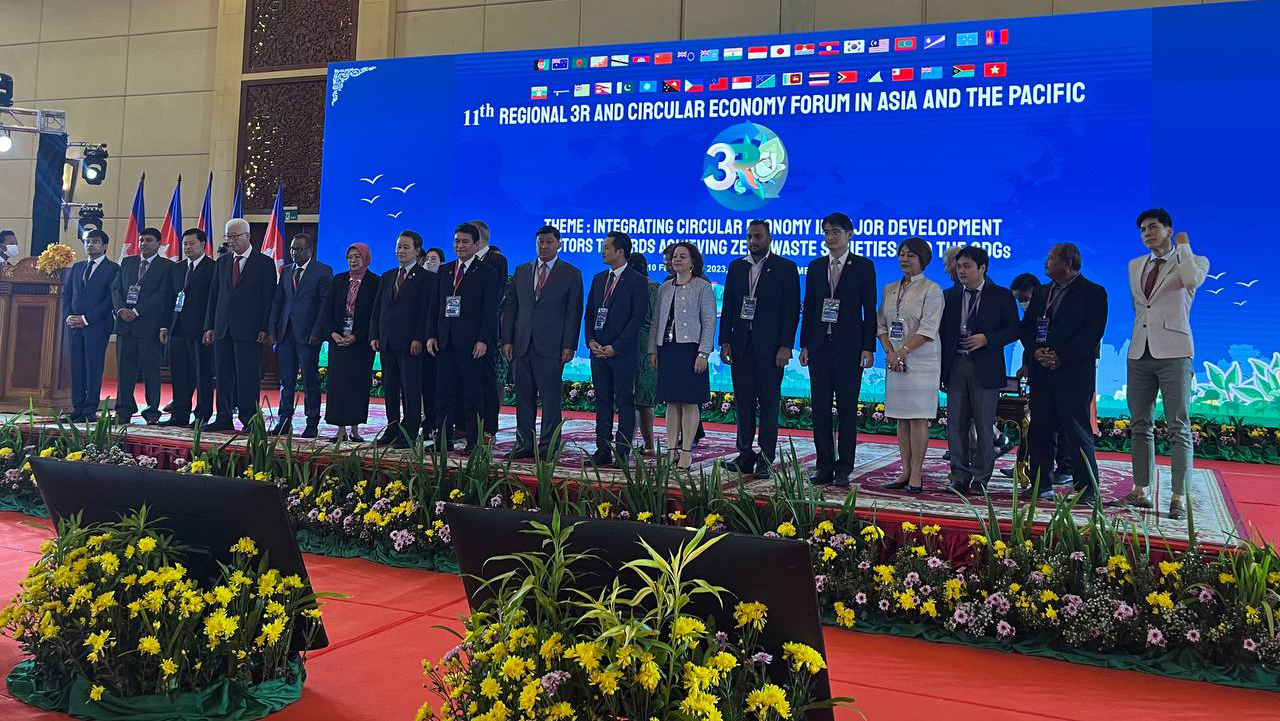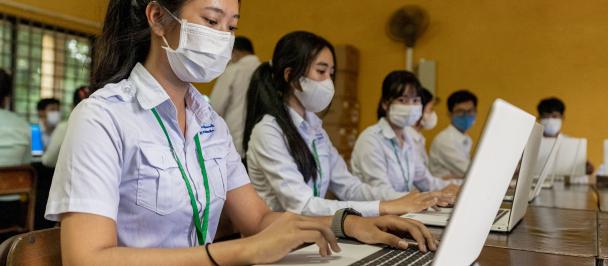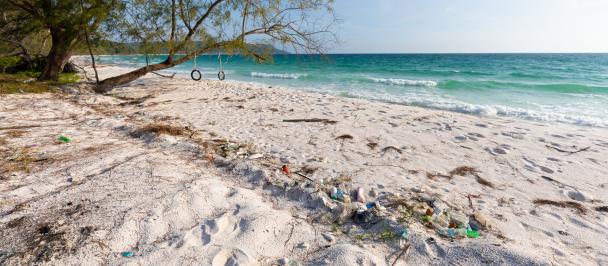Remarks by Ms. Alissar Chaker, UNDP Resident Representative
11th Regional 3R and Circular Economy Forum in Asia and the Pacific: Integrating Circular Economy in Major Development Sectors towards Achieving Zero Waste Societies and the SDGs
February 8, 2023

H.E. Mr. Say Samal, Minister of Environment, Kingdom of Cambodia
H.E. Mr. Shigeki Kobayashi, State Minister, Ministry of the Environment, Japan (MOEJ)
H.E. Mr. Li Jinhua, Under Secretary- General for Economic and Social Affairs (UN DESA)
H.E. Ms. Maimunah Mohd Sharif, United Nations Under-Secretary General and Executive Director, UN-Habitat
Dr. Kazushige Endo, Director, United Nations Centre for Regional Development (UNCRD)
H.E. Mr. Tea Seiha, Governor of Siem Reap Province
Distinguished Representatives of the Royal Government of Cambodia, Development Partners, Civil Society Representatives, UN Colleagues, Friends of the media, Ladies and Gentlemen.
I am delighted to participate with you all in the 11th Regional 3R and Circular Economy Forum in Asia and the Pacific.
First, I would like to congratulate the organizers for making this forum possible at a time when joint action and partnerships are crucial for overcoming the inter-linked triple planetary crisis facing humanity (namely, climate change, pollution, and biodiversity loss) and for achieving zero waste societies and the Sustainable Development Goals (SDGs).
Distinguished guests, ladies and gentlemen,
I am looking forward to today’s discussions on using the 3R approach of reducing, reusing, and recycling to resolve many of our development challenges by contributing to the SDG3, SDG6, SDG9, SDG11, SDG12, SDG13, SDG14, and SDG15, and to listening to valuable knowledge and experience on integrating circular economy in major development sectors.
Rapid urbanization is an increasing trend in our societies. As more people migrate from rural areas to cities, a host of environmental, social, and economic challenges ensue, including a significant increase in waste generation. In particular, plastic pollution has become a grave threat to the environment, public health and livelihoods. Microplastics enter our bodies through the food we eat, the water we drink, and even the air we breathe.
Profound changes to our ways of using and consuming resources and materials are needed to protect what remains of the rapidly declining vital environments and to keep the future safe for us and for coming generations.
In the business-as-usual linear economy, resources are extracted, turned into products, consumed, and discarded. Alternatively, circular economies aim to close the loop in value chains, use resources in the most sustainable and efficient way possible, and reduce the need for raw materials minimizing resource extraction and waste generation.
According to the recently published circularity gap report (2023), “a global circular economy will allow us to fulfill people's needs with only 70% of the materials we now extract and use—moving human activity back within the safe limits of the planet.”
This is important considering the Earth Overshoot Day which marks the time of the year when humanity has used all the biological resources regenerated in one year. In 1970, the overshoot day was on December 30th. Last year, in 2022, it fell on 28 July. This means that we are getting close to using two years of resources every year, putting immense pressure on ecosystems across the planet and accelerating ecological collapse.
In addition to its environmental and financial benefits associated with lesser use of resources and waste generation and consequently savings on the cost of raw material and waste treatment, circular economy has also significant socioeconomic benefits, namely, health and wellbeing, poverty reduction and job creation. According to the International Labour Organization (ILO), circular economy can create 6 million new jobs globally in the reuse, recycling, remanufacturing, and repair sectors.
Distinguished guests, ladies and gentlemen,
The 2009 Tokyo 3R Statement, the 2010 Kuala Lumpur Outcome, the 2011 Singapore 3R Recommendations, and the 2013 Hanoi 3R Declaration were important and mutually reinforcing milestones in the Asia Pacific Region for integrating the principles of circular economy into major development sectors for achieving zero waste societies and accelerating the SDGs.
In Cambodia, UNDP with generous support from the People of Japan, and the Ministry of Environment formulated the first National Circular Economy Strategy and Action Plan, which define the country’s vision and strategies for moving towards circular economy. The work entails effective plastic management, a key priority under the new strategy, fostering sustainable production and consumption behaviors, and promoting innovation and greener alternatives through regulation, taxation, and private-public partnerships.
We, at UNDP, appreciate the trust of the Royal Government and feel privileged to be part of this important work, led by the Ministry of Environment. We also look forward to continuing our partnership and collaboration with all actors present here today for a smooth and durable transition to circular economy in Cambodia.
In closure, I would like to note that the shift to circular economy and promoting innovation can be accelerated by impact investment and innovative finance. Thus, I cannot over-emphasize the role of corporate and financial institutions and I invite you to partner with them as important agents of change.
I wish you all successful discussions and a good continuation.
Thank you.

 Locations
Locations




